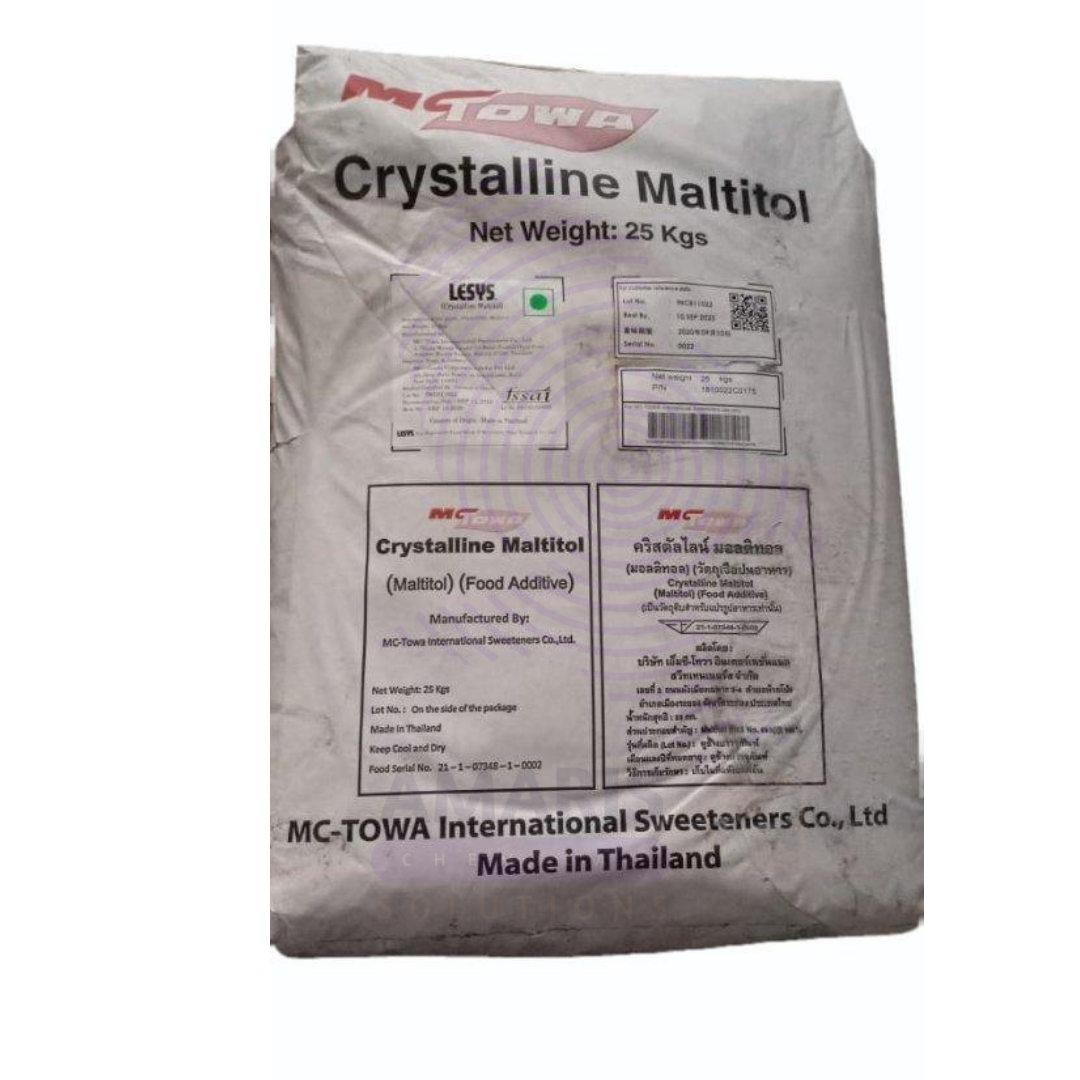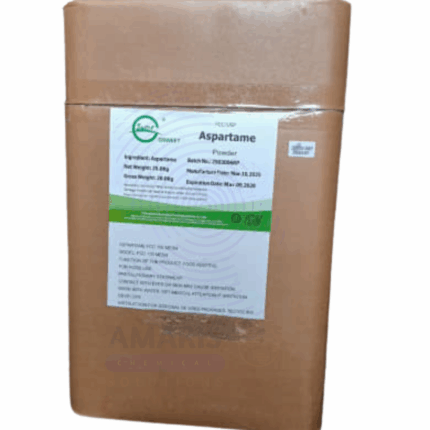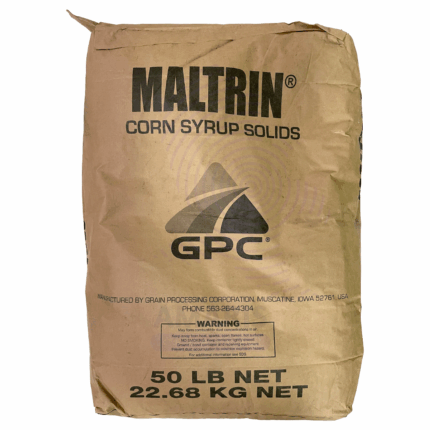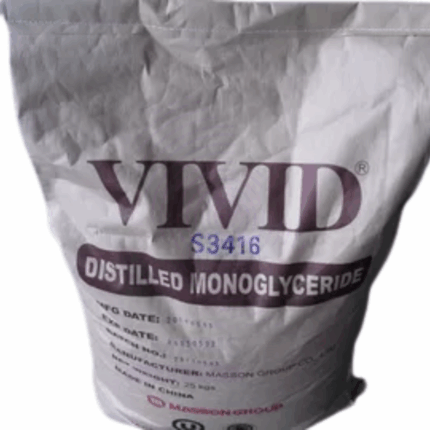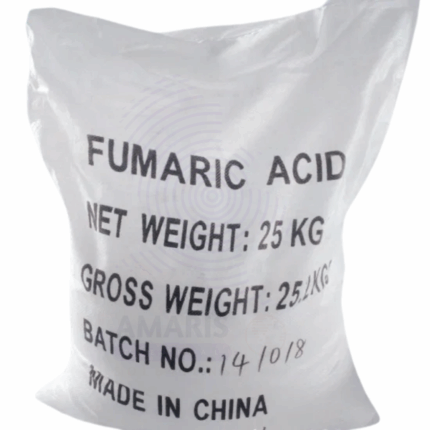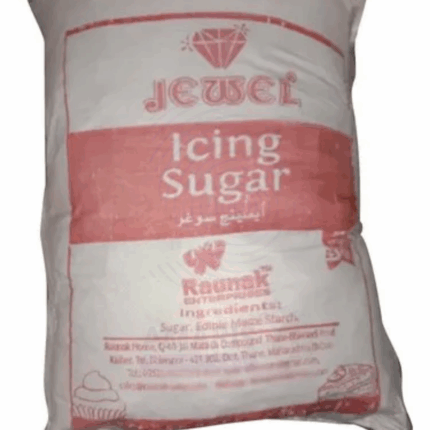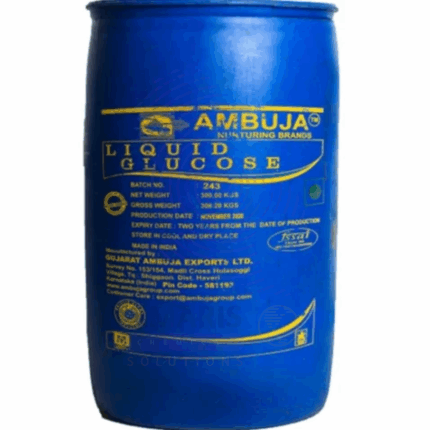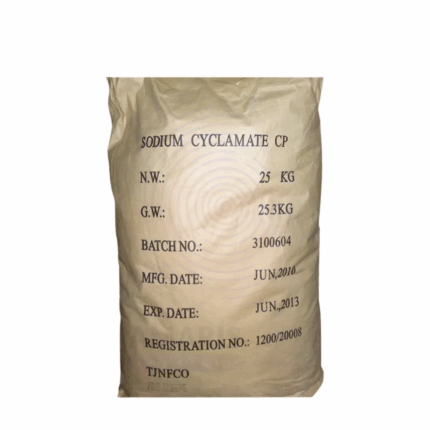Maltitol Powder
Whatsapp Order
Maltitol Powder is a white, crystalline polyol (sugar alcohol) derived from hydrogenated maltose obtained from starch sources like corn or wheat. It is a low-calorie, high-sweetness sugar substitute with about 90% the sweetness of sucrose but significantly fewer calories (approximately 2.1 kcal/g vs. 4 kcal/g for sugar). It has excellent solubility, low hygroscopicity, and provides a clean, sweet taste without an aftertaste. Maltitol Powder is widely used in food, pharmaceutical, and nutraceutical applications for its sugar-like properties, making it suitable for diabetic, low-carb, and dental-friendly formulations.
Categories: Fat Replacers, Sweeteners
Tags: Baking ingredient, Food additive, Low-calorie sweetener, Maltitol Powder, Sugar substitute
Description
Table of Contents
Toggle
Maltitol Powder
Primary Uses
- Food & Beverage Industry
- Sugar Substitute: Used in sugar-free or reduced-calorie products such as candies, chocolate, chewing gum, baked goods, ice cream, and desserts.
- Texture Enhancer: Mimics the texture and bulk of sugar in baked goods and confections without crystallization issues.
- Moisture Retention: Helps maintain moisture and softness in baked goods due to its humectant properties.
- Sweetener for Diabetic Foods: Commonly used in diabetic-safe formulations as it has a low glycemic index and does not spike blood sugar significantly.
- Syrup Preparation: Can be dissolved in water to form sugar-free syrups for beverages and toppings.
- Chocolate Manufacturing: Preferred over other polyols in chocolate for its mild cooling effect and compatibility with cocoa butter.
- Pharmaceutical Industry
- Excipient: Used as a sweetener, binder, or filler in chewable tablets, lozenges, powders, and oral suspensions.
- Coating Agent: Employed in sugar-free tablet coatings and films for better taste and appearance.
- Tooth-Friendly Medicinals: Ideal in formulations where non-cariogenic (non-cavity-forming) ingredients are required.
- Pediatric and Geriatric Formulations: Added to enhance palatability of medications without adding sugar.
- Nutraceuticals & Dietary Supplements
- Functional Sweetener: Used in protein bars, diet snacks, and health supplements for calorie reduction.
- Fiber-Rich Formulations: Sometimes combined with dietary fibers to enhance digestive tolerance.
Secondary Uses
- Oral Care Products
- Sugar-Free Flavoring: Added to toothpaste, mouthwash, and oral rinses to enhance taste without promoting tooth decay.
- Dental-Friendly Chewing Gum: Promotes oral health due to its non-fermentable nature by oral bacteria.
- cosmetics & Personal Care
- Humectant: Occasionally used in moisturizers, lotions, and creams for its water-binding ability and skin-softening properties.
- Non-Sticky Sweetener: Used in lip care or edible cosmetic products for a mild sweetening effect.
- Pet Food and Animal Supplements
- Palatability Enhancer: Used in small quantities in specialized pet foods and supplements to improve taste.
- Laboratory and Research
- Sugar Model Compound: Used in testing as a sugar analog in digestion, metabolic, or food science research.
PRODUCT KEY FEATURES
- Basic Identification Attributes
- Chemical Name (IUPAC): 4-O-α-D-Glucopyranosyl-D-sorbitol
- Common/Trade Name: Maltitol Powder
- CAS Number: 585-88-6
- HS Code: 2905.49.00
- Synonyms: Hydrogenated maltose; Maltisweet; Maltisorb; Sorbitol-glucose; E965 (EU food additive number); Sugar alcohol
- Physical & Chemical Properties
- Physical State: Crystalline powder
- Color & Odor: White, odorless
- Melting Point: 145–150 °C
- Solubility: Highly soluble in water; insoluble in fats and oils
- Sweetness Index: ~90% of sucrose
- Calorific Value: Approx. 2.1 kcal/g
- pH (5% solution): 5.0 – 7.0
- Hygroscopicity: Low
- Cooling Effect: Mild (less than xylitol or erythritol)
- Safety & Hazard Attributes
- GHS Classification: Not classified as hazardous
- Toxicity: Non-toxic; excessive consumption may cause gastrointestinal discomfort
- Exposure Limits: Not established; good industrial hygiene recommended
- Allergenicity: Generally recognized as safe (GRAS); gluten-free if sourced from corn
- Storage & Handling Attributes
- Storage Conditions: Store in a dry, cool environment; avoid moisture and direct sunlight
- Container Type: Poly-lined kraft bags, fiber drums, or sealed food-grade containers
- Shelf Life: 24–36 months under recommended storage conditions
- Handling Precautions: Avoid inhalation of dust; use protective gear for large-scale handling
- Regulatory & Compliance Attributes
- Approved as food additive (E965) by FDA, EFSA, JECFA, and Codex Alimentarius
- Labeled as a polyol/sugar alcohol in nutritional labeling
- Included in low-GI and sugar-free product certifications
- Complies with food-grade standards (FCC, USP, or equivalent)
- Environmental & Health Impact
- Biodegradability: Readily biodegradable
- Ecotoxicity: Low to no environmental impact
- Bioaccumulation: Not expected
- Carcinogenicity/Mutagenicity: Not classified as carcinogenic or mutagenic
SAFETY HANDLING PRECAUTIONS
- Safety Handling Precautions
- PPE Required: Dust mask, gloves, and goggles recommended for bulk handling
- Handling Guidelines: Avoid creating airborne dust; use in ventilated areas
- Storage Measures: Keep tightly sealed to prevent clumping or contamination
- First Aid Measures
- Inhalation: Move to fresh air if dust causes discomfort
- Skin Contact: Wash with soap and water
- Eye Contact: Rinse eyes with clean water for several minutes
- Ingestion: Safe for consumption in regulated quantities; large intake may cause laxative effect
- Firefighting Measures
- Fire Hazards: Combustible in powdered form under dust-air mixture conditions
- Extinguishing Media: Use dry chemical, water spray, or CO₂ extinguishers
- Special Precautions: Avoid dust cloud generation; remove ignition sources
- Hazardous Combustion Products: May release carbon dioxide and carbon monoxide
Related products
Aspartame
Aspartame is a low-calorie artificial sweetener approximately 200 times sweeter than sucrose (table sugar). It is a methyl ester of the dipeptide composed of aspartic acid and phenylalanine. Due to its intense sweetness and low-calorie nature, aspartame is widely used as a sugar substitute in various food and beverage products. It is popular among consumers seeking to reduce caloric intake, especially diabetics and those on weight management programs. Aspartame breaks down at high temperatures, limiting its use in certain cooking or baking applications. It is approved by numerous global food safety authorities, including the FDA and EFSA.
Corn Syrup
Corn Syrup is a viscous, sweet liquid derived from the enzymatic hydrolysis of corn starch. It consists primarily of glucose and maltose along with higher saccharides, providing sweetness, viscosity, and moisture retention in food formulations. Corn Syrup is widely used in food and beverage industries as a sweetener, humectant, and texture enhancer. Its ability to prevent crystallization and retain moisture makes it essential in confectionery, baking, and processed foods. Industrial grades of corn syrup are also used in pharmaceuticals and other manufacturing applications where its binding and stabilizing properties are valued.
Distilled Monoglycerides Remosoft
Distilled Monoglycerides Remosoft are purified monoglycerides derived from the glycerolysis of edible fats and oils, followed by a distillation process that removes impurities and enhances purity. They are colorless to pale yellow, odorless, and possess excellent emulsifying properties. DMG is widely used in food, pharmaceutical, and cosmetic industries due to its surface-active properties, ability to stabilize emulsions, and function as an anti-caking and lubricating agent. The distilled grade ensures high purity and low free fatty acid content, making it suitable for sensitive applications.
Fumaric Acid
Fumaric Acid is a naturally occurring dicarboxylic acid characterized by its white crystalline powder form and a slightly acidic taste. It is an unsaturated organic acid with the chemical formula C4H4O4 and is an intermediate in the Krebs cycle in biological systems. Fumaric Acid is commonly found in various plants and fungi and is commercially produced by isomerization of maleic acid or by fermentation. It is widely used in the food, pharmaceutical, chemical, and polymer industries due to its acidulant, antioxidant, and crosslinking properties.
Icing Sugar
Icing Sugar, also known as powdered sugar or confectioners’ sugar, is a finely ground sugar with a powdery consistency. It is typically made by milling granulated sugar into a fine powder and blending it with a small amount of anti-caking agent (usually cornstarch or tricalcium phosphate) to prevent clumping. Icing Sugar is white, odorless, and has a sweet taste. It is widely used in baking, confectionery, and culinary applications to provide sweetness, texture, and decorative finishes.
Liquid Glucose
Liquid Glucose is a viscous, clear to pale amber syrup primarily composed of glucose and other saccharides. It is produced by the enzymatic hydrolysis of starch derived from corn, wheat, or potatoes. Known for its high sweetness and excellent moisture-retention properties, Liquid Glucose is widely used in the food and beverage industry to enhance texture, sweetness, and shelf life. It also acts as a humectant and crystallization inhibitor, improving the quality and consistency of various processed foods.
Sodium Cyclamate 80 Mesh
Sodium Cyclamate 80 Mesh is a white, crystalline powder used as an artificial sweetener. It is approximately 30 to 50 times sweeter than sucrose (table sugar) and provides a low-calorie sugar substitute. Due to its high sweetness and stability under heat and acidic conditions, it is commonly used in food and beverage formulations, pharmaceuticals, and personal care products as a sugar alternative.
Sodium Saccharin
Sodium Saccharin is a white crystalline powder or granule with the chemical formula C₇H₄NNaO₃S·2H₂O. It is the sodium salt of saccharin, an artificial sweetener approximately 300–500 times sweeter than sucrose. This non-nutritive, zero-calorie sweetener is widely used in food, beverage, pharmaceutical, and personal care industries. Packaged in 25kg containers, it is highly soluble in water, heat-stable, and has excellent shelf life, making it a cost-effective and versatile sweetening agent.


 Preservatives(food)
Preservatives(food) Flavor Enhancers
Flavor Enhancers Acidulants
Acidulants Sweeteners
Sweeteners Antioxidants
Antioxidants Colorants(food)
Colorants(food) Nutraceutical Ingredients (food)
Nutraceutical Ingredients (food) Nutrient Supplements
Nutrient Supplements Emulsifiers
Emulsifiers
 Collectors
Collectors Dust Suppressants
Dust Suppressants Explosives and Blasting Agents
Explosives and Blasting Agents Flocculants and Coagulants
Flocculants and Coagulants Frothers
Frothers Leaching Agents
Leaching Agents pH Modifiers
pH Modifiers Precious Metal Extraction Agents
Precious Metal Extraction Agents
 Antioxidants(plastic)
Antioxidants(plastic) Colorants (Pigments, Dyes)
Colorants (Pigments, Dyes) Fillers and Reinforcements
Fillers and Reinforcements Flame Retardants
Flame Retardants Monomers
Monomers Plasticizers
Plasticizers Polymerization Initiators
Polymerization Initiators Stabilizers (UV, Heat)
Stabilizers (UV, Heat)
 Antifoaming Agents
Antifoaming Agents Chelating Agents
Chelating Agents Coagulants and Flocculants
Coagulants and Flocculants Corrosion Inhibitors
Corrosion Inhibitors Disinfectants and Biocides
Disinfectants and Biocides Oxidizing Agents
Oxidizing Agents pH Adjusters
pH Adjusters Scale Inhibitors( water)
Scale Inhibitors( water)
 Antioxidants(cosmetic)
Antioxidants(cosmetic) Emollients
Emollients Fragrances and Essential Oils
Fragrances and Essential Oils Humectants
Humectants Preservatives
Preservatives Surfactants(cosmetic)
Surfactants(cosmetic) Thickeners
Thickeners UV Filters
UV Filters
 Fertilizers
Fertilizers Soil Conditioners
Soil Conditioners Plant Growth Regulators
Plant Growth Regulators Animal Feed Additives
Animal Feed Additives Biostimulants
Biostimulants Pesticides (Herbicides, Insecticides, Fungicides)
Pesticides (Herbicides, Insecticides, Fungicides)
 Active Pharmaceutical Ingredients (APIs)
Active Pharmaceutical Ingredients (APIs) Excipients
Excipients Solvents(pharmaceutical)
Solvents(pharmaceutical) Antibiotics
Antibiotics Antiseptics and Disinfectants
Antiseptics and Disinfectants Vaccine Adjuvants
Vaccine Adjuvants Nutraceutical Ingredients (pharmaceutical)
Nutraceutical Ingredients (pharmaceutical) Analgesics & Antipyretics
Analgesics & Antipyretics
 Analytical Reagents
Analytical Reagents Solvents(lab)
Solvents(lab) Chromatography Chemicals
Chromatography Chemicals Spectroscopy Reagents
Spectroscopy Reagents microbiology-and-cell-culture-reagents
microbiology-and-cell-culture-reagents Molecular Biology Reagents
Molecular Biology Reagents Biochemical Reagents
Biochemical Reagents Inorganic and Organic Standards
Inorganic and Organic Standards Laboratory Safety Chemicals
Laboratory Safety Chemicals Specialty Laboratory Chemicals(Special Laboratory Equipment)
Specialty Laboratory Chemicals(Special Laboratory Equipment)
 Demulsifiers
Demulsifiers Hydraulic Fracturing Fluids
Hydraulic Fracturing Fluids Scale Inhibitors(oil)
Scale Inhibitors(oil) Surfactants(oil)
Surfactants(oil) Drilling Fluids
Drilling Fluids
 Dyes and Pigments
Dyes and Pigments Bleaching Agents
Bleaching Agents Softening Agents
Softening Agents Finishing Agents
Finishing Agents Antistatic Agents
Antistatic Agents
 Admixtures
Admixtures Waterproofing Agents
Waterproofing Agents Sealants and Adhesives
Sealants and Adhesives Curing Compounds
Curing Compounds Concrete Repair Chemicals
Concrete Repair Chemicals Anti-Corrosion Coatings
Anti-Corrosion Coatings
 Surfactants(cleaning)
Surfactants(cleaning) Builders
Builders Enzymes
Enzymes Solvents (Cleaning)
Solvents (Cleaning) Fragrances
Fragrances
 Electronic Chemicals
Electronic Chemicals Catalysts
Catalysts Lubricants
Lubricants Photographic Chemicals
Photographic Chemicals Refrigerants
Refrigerants Automotive chemicals
Automotive chemicals Pyrotechnic Chemicals
Pyrotechnic Chemicals
 Biodegradable Surfactants
Biodegradable Surfactants Bio-based Solvents
Bio-based Solvents Renewable Polymers
Renewable Polymers Carbon Capture Chemicals
Carbon Capture Chemicals Wastewater Treatment Chemicals
Wastewater Treatment Chemicals
 Pigments
Pigments Solvents(paint)
Solvents(paint) Specialty Coatings
Specialty Coatings Binders/Resins
Binders/Resins Additives
Additives Driers
Driers Anti-Corrosion Agents
Anti-Corrosion Agents Functional Coatings
Functional Coatings Application-Specific Coatings
Application-Specific Coatings
 Fresh Herbs
Fresh Herbs Ground Spices
Ground Spices Whole Spices
Whole Spices Spice Blends
Spice Blends Dried Herbs
Dried Herbs
 Leavening Agents
Leavening Agents Dough Conditioners
Dough Conditioners Flour Treatments
Flour Treatments Fat Replacers
Fat Replacers Decoratives
Decoratives Preservatives(baking)
Preservatives(baking)
 Plasticizers & Softeners
Plasticizers & Softeners Reinforcing Agents
Reinforcing Agents Adhesion Promoters
Adhesion Promoters Vulcanizing Agents
Vulcanizing Agents Antidegradants
Antidegradants Blowing Agents
Blowing Agents Fillers & Extenders
Fillers & Extenders Accelerators & Retarders
Accelerators & Retarders